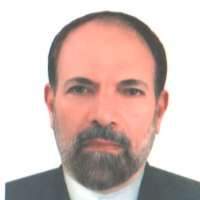Mullā Ṣadrā and the Problem of Imaginary Time
One of the most controversial philosophical-kalami issues in the history of Islamic philosophy has always been the analysis of the problem of the origination and pre-eternity of the world. Most Muslim mutikallimūn believe in the temporal origination of the world and consider the pre-universe time to be “imaginary”. As the most supreme philosopher of the Transcendent Philosophy, Mullā Ṣadrā has also discussed imaginary time in different places in his works. He has adopted two different approaches to this theory but does not express his view explicitly. The present study explains Mullā Ṣadrā’s opinions regarding the theory of imaginary time and his two approaches in this respect in order to answer the question of what his ultimate standpoint regarding imaginary time is. In order to accomplish this task, the authors have referred to the scattered discussions in his works and, after studying and explaining the relationships between them and combining them with each other, have provided a description of Mullā Ṣadrā’s ultimate view. Although in some places he tries to justify the theory of imaginary time based on his own principles, given his explicit statements on negating an intermediary between the world of being and Almighty Necessary as well as his demonstration of the existence of time and rejection of the arguments of deniers of time, it can be concluded that his ultimate view here is the negation of imaginary time.
-
A Study of Qāḍī Saʿīd al-Qummī’s Transmitted Textual Evidence for Rejecting Homogeneity between God and Creatures
Javad Nazari *, , Majid Ziaei
Journal of Imamiyyah Studies, -
Researching religion and theological opinions of Tavus bin Kisan Yamani
Saeed Tavoosimasror *, SHAMSOLAH SERAJ, Saeed Sorkhikhozuni
Journal of Kalam Pajouhi,


